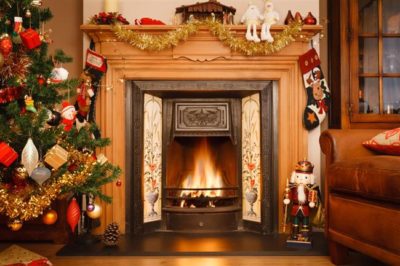 A roaring wood fire in your living room could soon be a thing of the past if a growing movement is successful.
A roaring wood fire in your living room could soon be a thing of the past if a growing movement is successful.
More and more communities across North America are moving to ban wood and coal-burning fireplaces in an effort to control air pollution – and in some locations it already is prohibited. Both activists and local governments are targeting fireplaces as threat to public health.
“Wood smoke is an extremely toxic, public health hazard,” Brian Moench, the president of Utah Physicians for a Healthy Environment; told The Deseret News. Moench’s group has petitioned Utah’s Air Quality Board to ban wood burning in Salt Lake City and other urban areas of Utah.
“Routine wood burning should not be allowed for the same philosophical, aesthetic and public health reasons as the prohibition of cigarette smoking in public venues,” Moench said. Moench based his claims on an Environmental Protection Agency study that showed wood smoke is 12 times as toxic as second-hand cigarette smoke.
It should be noted that Utah’s state government has not gone along with Moench’s demands yet. His proposal seems to have the support of Kerry Kelly, the vice president of the Utah Air Quality Control Board. Kelly, a chemical engineer, wrote a report condemning wood burning as a menace to public health.
The Most Versatile Backup Stove In The World Allows You To Cook Anything, Any Time, Any Where
Those who rely on wood or coal for heat should be worried about Moench’s sentiments because they seem to be spreading fast. There are several fireplace bans in place in North America and a concerted effort to create more.
Supporters of burning wood, though, note that it is all-natural, allows for self-sufficiency, and has been used for millennia by humans to stay warm.
Where Fireplaces are Already Illegal
Fireplaces and wood stoves are already illegal in several cities and regions. The most prominent fireplace bans include:
- The Bay Area Air Quality Management District, which includes the cities of San Francisco, Oakland and San Jose and many other communities and which has a ban on wood burning for five years. Under the ban, 178 people received citations for wood burning last year. Those who violate the ban must pay a $100 fine or attend a smoke education class. Second-time offenders can receive a $500 fine. The bans are only put in place on certain days when air quality is low.
- The City of Berkley banned the installation of log-burning fireplaces in new homes in 2008. Activist Jami Caseber, who supported the ban, called it the “first step to controlling or curtailing residential wood burning.” Caseber was disappointed because the city council refused to ban existing fireplaces. Berkley’s law also required restaurants that use wood-burning ovens and grills to install pollution control equipment.
- The city of Montreal wants to eliminate all wood-burning stoves and fireplaces by the end of 2020. The city council ratified a policy this year that would require homeowners to render fireplaces inoperable or replace them with an EPA-approved pellet burner or a gas burner. The city government has a program called Feu-Vert which pays homeowners to replace wood burners with less polluting devices. Like Berkley Montreal banned the installation of wood-burning fireplaces and stoves in new homes in 2009.
- The Environmental Protection Agency has effectively banned the production and sale of most wood burning stoves in the United States with new standards, as previously reported by Off The Grid News. The standards would take 80 percent of the stoves currently sold in the United States off the market.
- The San Joaquin Valley Pollution Control District in Central California, which includes the cities of Tulare, Fresno and Bakersfield, is curtailing wood burning each winter. Persons that don’t have access to natural gas and those who rely on wood or coal as their only source of heat are exempt from the ban.
Wood Burning Bans and Off-the-Grid Living
If you rely on wood or coal for heat you should beware. Local governments could soon prohibit usage of your fireplace or wood stove down in the name of public health.
 Off The Grid News Better Ideas For Off The Grid Living
Off The Grid News Better Ideas For Off The Grid Living



